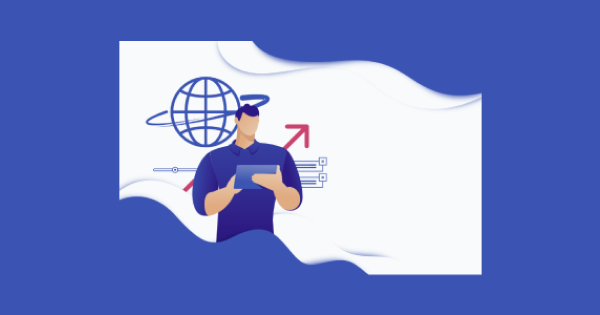Starting a business is difficult, with infinite variables to manage. You may have been in the market for possible ERP solutions for your small or mid-sized organization, and maybe zeroed down on SAP Business One ERP. With SAP Business One 9.3, their latest release, it’s quite likely to be a winner for your organization.
In this blog, we plan on getting elemental and provide a comprehensive guide on SAP Business One ERP aimed at pricing, tech specs, implementation, and a brief comparison to other ERPs and more. This guide is for Finance Managers, Entrepreneurs, Operations Heads, and other SMB key decision-makers focusing on strengthening their understanding of SAP Business One and evaluating this solution for their organization.
Contents
What Is SAP Business One ERP?
SAP Business One is an ERP or Enterprise Resource Planning Software for Small Medium Businesses (SMBs)
How Does SAP Business One ERP Work?
ERP systems give your business an integrated and unified dashboard of functionalities to operate business processes ranging from various divisions such as finance, manufacturing, distribution, customer relations, and everything else. This is because the company data remains within one integrated system, the flow of information becomes seamless from one region of your business to the other, allowing you the freedom from manual data entry and other time-consuming tasks.
An ERP solution also enables you to run departmental reports in real-time and facilitates important aspects like budgeting and forecasting across the organization. This is a crucial feature for any growing business. SAP Business One is SAP’s exclusive offering for Small & Midsize Businesses, they are ideal for organizations that are on the precipice to outgrow their existing standard accounting package and need additional features at a cost-effective compensation.
SAP Business One as an ERP solution has several core components that can be deployed to a variety of areas in your business. These include Accounting, Purchasing, CRM, and Supply Chain Logistics, and more. All integrated into one unified dashboard and a singular repository in a system. You can visit the official SAP Business One website to learn more about each module in detail.
In this blog, we explore the ERP system to provide information about pricing, launch, and other significant areas.
Who Can Use SAP Business One ERP?
This is an important question, who uses SAP Business One? Well, organizations choose to switch to SAP Business One ERP typically after facing some or all of the following challenges with their current systems.
- The Accounting Module lacks features needed;
- Still using spreadsheets to run the business on basic systems;
- Too many fragmented tools making information flow hard to track and report;
- Lack of transparency in the overall business operations;
- The Old/Legacy ERP system hinders business growth/ lacks support.
In the industry SAP Business One, has seen an increased switch by companies operating in:
Consumer Goods
– An excellent tool for forecasting and managing demand with full business management, purchasing, supplier supervision, and more.
Industrial Machinery & Modules
– An increased capability for efficiency and optimizing supply chain logistics costs. It also revs up the cycle for accelerated profits in shorter timelines.
Professional Services
– Project management, billing, and data analytics are only a few core favorite modules of SAP Business One functionalities.
Wholesale Distribution
– Upgraded demand planning and supply chain transparency assists in the wholesale distribution business growth further. Consider this case study.
To corroborate, SAP Business One is a highly scalable and adopted ERP by organizations with 10 to 100+ employees and a $10+ million turnover.
What Are SAP Business One ERP Modules?
SAP Business One has diverse core modules that can be used to run different verticals of your business from a single dashboard. This provides 360 degrees of operations. Some of the core SAP Business One Modules Include:
- Business Administration
- Finance
- Sales
- Purchasing
- Business Partners
- Banking
- Inventory
- Resources
- Production Management
- Material Requirement Planning
- Service Management
- Human Resource
- Project Management
- Real-Time Reports
You can also customize these solutions to fit the specific business requirements. To know more about SAP Business One options, continue reading…
How Much Does SAP Business One ERP Cost?
Since SAP Business One offers a diverse range of solutions and its pricing varies depending upon the features and functionalities you want to implement. Below is an indicative cost for different options.

Using SAP Business One ERP?
Do you think that learning and using a new ERP especially SAP Business One will be hard? SAP Business One is a powerful ERP product and has great community support. Of course, if you want to utilize the ERP to its full potential, learning will be essential. Below are some resources that you can use to master the SAP Business One ERP.
- Official SAP Business One guide here;
- Official SAP Business One community here;
- Our SAP Business one blog and LinkedIn platform.
Comparing SAP Business One ERP To Other ERP Solutions?
Are you still wondering whether SAP Business One is the right ERP solution for your business? Why don’t you check out what the community has to say about SAP Business One on some of the few review sites? To further facilitate your decision-making you can compare on sites like Capterra or G2 to measure SAP Business one to other ERP solutions by industry, ratings, customer views, pricing, organization size, features, and more.
How Complex Is It To Deploy SAP Business One ERP?
SAP Business One can be deployed in the cloud or on-premise. Any typical SAP Business One deployment ranges from 15 to 60 days and requires the contribution of the key stakeholders from the customer site. Below are some timelines for a cursory understanding.
-
Finance Implementation
15 days and you get access to the general ledger, purchasing accounts, accounts receivable, BAS, fixed assets, banking, budgeting, financial reporting.
-
Distribution
30 days and you get inventory management, purchase planning, forecasting, purchase orders, goods invoice. CRM – other activities and upsell opportunities.
-
Manufacturing
40 days and you get finance, distribution, manufacturing, work orders, MRP, and production resource planning with CRM.
-
Pricing
40 days and you get finance, project costing/services, services management, billing vouchers, and reporting with CRM.
There are two highlight components of the SAP Business One suite, pre-sales requirement analysis – where you can discover and scope your business needs during a day on-site operations, and the second is the user acceptance testing which ensures the success of the project upon its delivery.
How To Integrate SAP Business One ERP Into Your Business?
By using an integration platform as a service you can integrate SAP Business One ERP into your existing business. You can use the DCKAP Integrator integration platform. Here you can integrate and extend the capability of your SAP Business One ERP by other key applications such as SAP Business One + eCommerce, SAP Business One + (CRM, SCM, Marketplace, Third-Party Integration) Use this comprehensive guide to learn how to integrate SAP Business One Sap Business One Salesforce integration or Sap erp integration into your business .
DCKAP Integrator provides connectors for SAP Business One that synchronize important information between SAP Business One with all front end and back end applications and business channels, it also provides its custom API for SAP Business One, which can incorporate any degree of complexity about SAP Business One integration. Use this guide here to get a complete overview of SAP Business One ERP Solution for your business requirements.
It is also a GDPR compliant platform that ensures the complete security of your data through encrypted transactions and SSL certifications. Additionally, the DCKAP Integrator platform provides you best-in-class UI and UX, with drag and drop features and minimal coding effort.
In Conclusion
More than 55,000 businesses are using SAP Business One ERP Solution in 150 countries, there’s no secret that SAP has found a strategy for the success of SMBs with their product.
As a small-medium business resource planning, SAP Business One is capable of holistically streamlining your entire business management process, providing your employees with a single unified platform for all their operational needs. This includes but is not limited to, finance and accounting management, administration, material requirements, planning, human resource management, marketing, and sales, business administration and intelligence, and more.
The cloud implementation feature of the option makes SAP Business One ERP a strategically perfect solution for businesses that are looking to optimize their operational costs. It allows for scalability through smart and efficient IT methodologies.
To sum it up, if you’re in the market for a possible ERP solution for your business, SAP Business One should be on your research list. However a word of caution, every business is different in their practices, and with it are their requirements. ensure that you gain the most out of your ERP, research deeply about your business requirements, and understand how various ERP solutions are positioned to provide you value according to your business needs. This will let you maximize growth for your business with an ERP that fits perfectly like pieces of a puzzle.
At DCKAP Integrator, we have helped hundreds of small, medium, and large scale organizations move to SAP Business One seamlessly. For more information, you can learn more about our team and schedule a meeting with our experts to help you get started.
Visit DCKAP Integrator for the best SAP Business One Integration practices.




